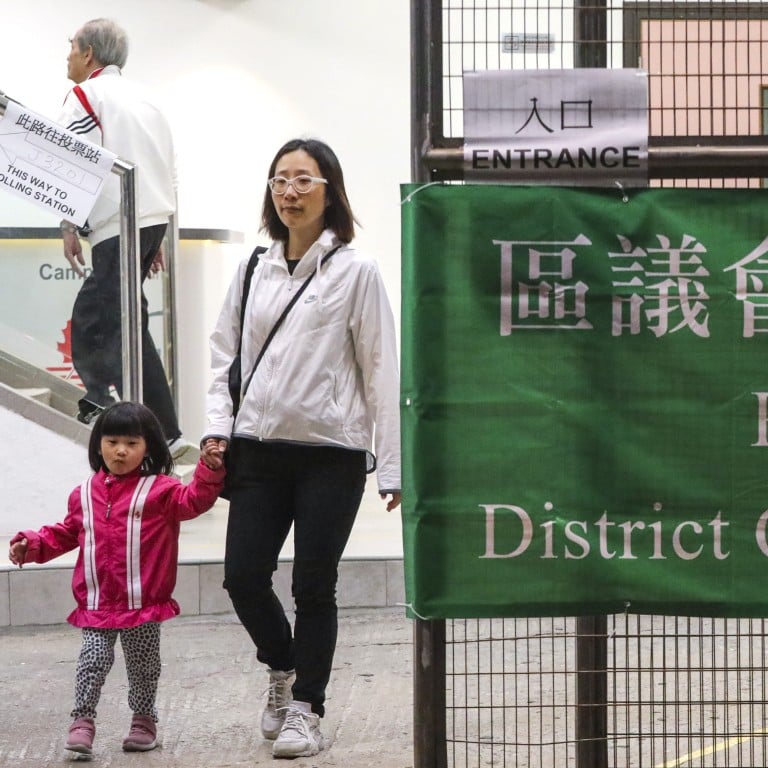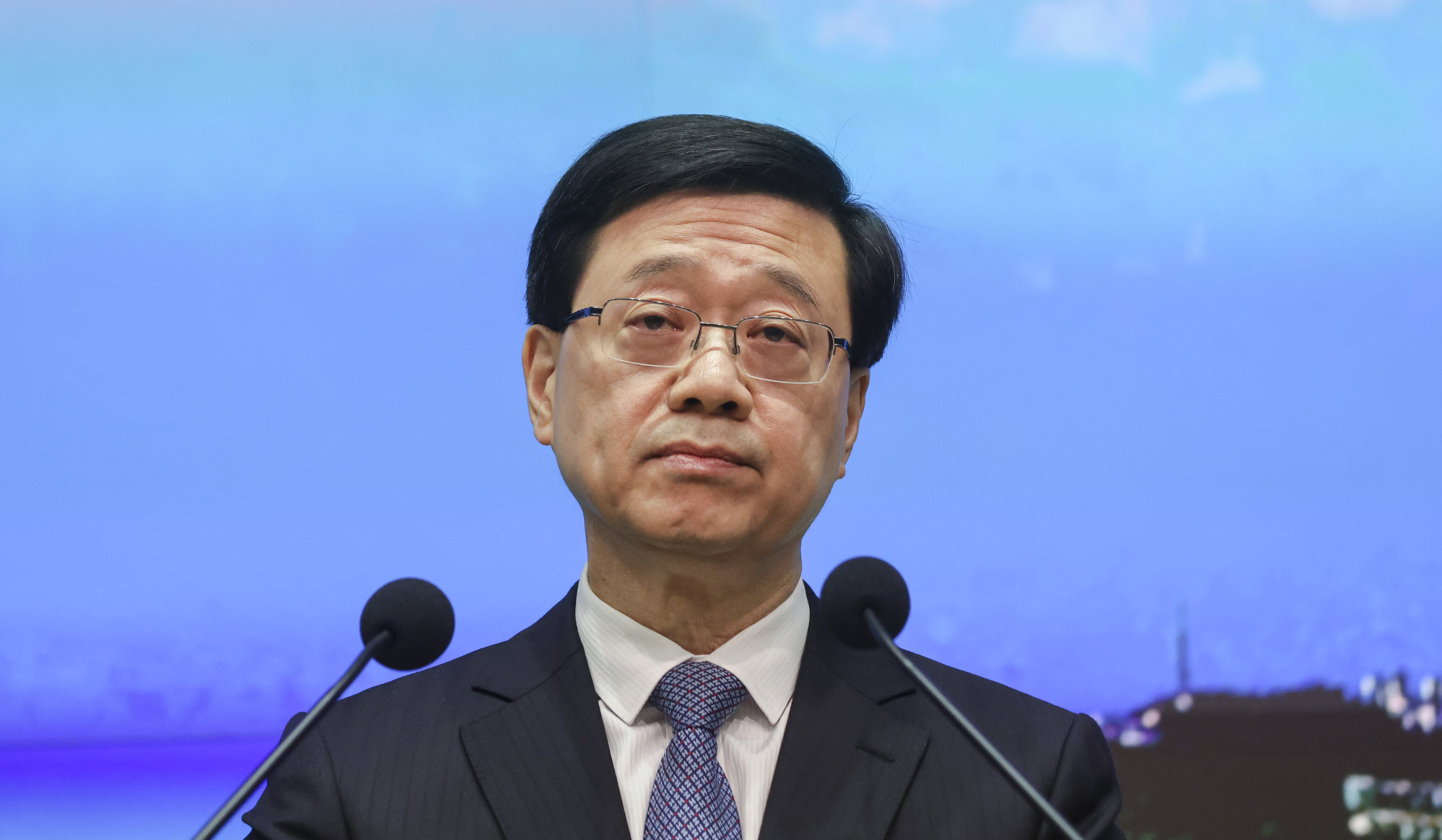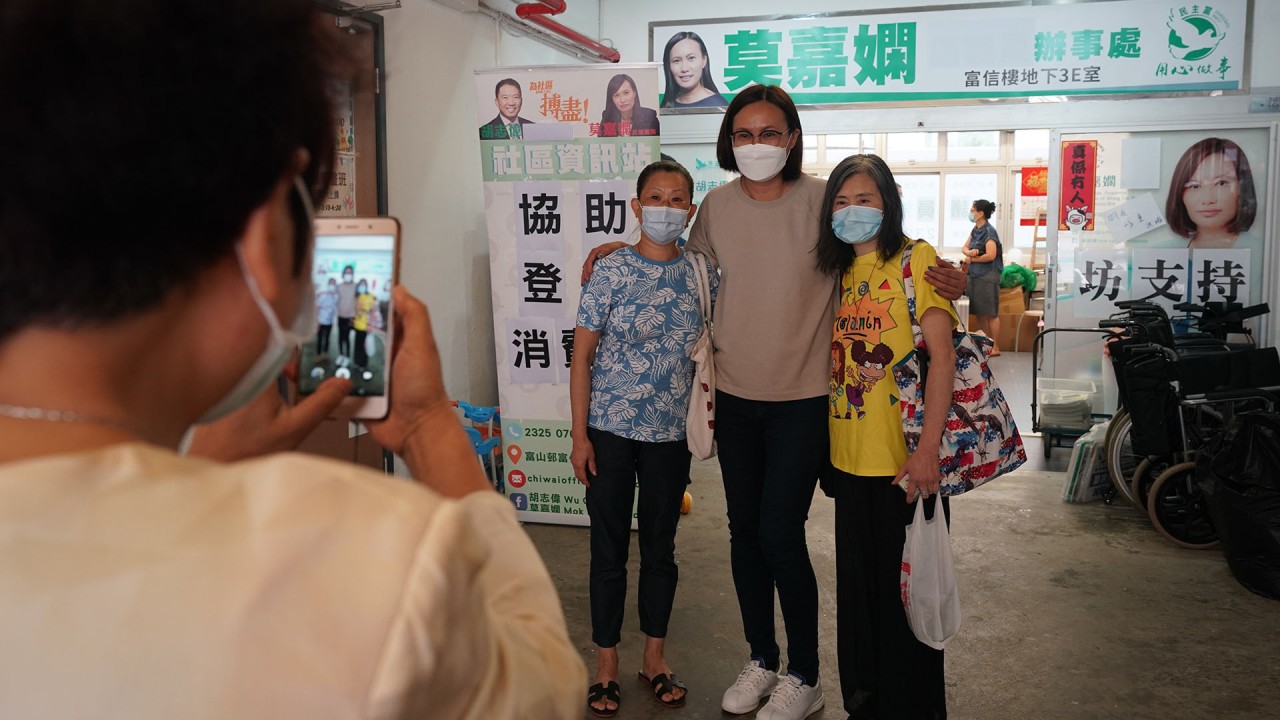
Hong Kong district councils to be patriots only, John Lee says, with ‘one-third of seats’ to be directly elected, sources reveal
- ‘We will retain a certain number of seats chosen by elections’, city’s leader says, adding municipal bodies to be completely ‘depoliticised’ and administrative-led
- Government is wrapping up long-running review of district councils aiming to prevent ‘hijacking’ of organisations by members of opposition camp following 2019 election
Future district councils will be comprised solely of “patriots” to avoid them from becoming hotbeds for pro-independence elements, Hong Kong’s leader has said, as sources revealed only about one-third of the 450 elected seats will be picked by the public.
“We will retain a certain number of seats chosen by election while allowing people who love the country and Hong Kong and are willing to serve to participate in district councils through ‘various other ways’,” he added.

Lee stopped short of breaking down how many district council spots would be chosen by election and appointments, but a source familiar with the plan said only about one-third of the 452 seats would be determined by direct votes.
The remainder would be appointed by district officers or picked by committees packed with hundreds of pro-establishment figures, the source added.
Currently, there are 452 directly elected members and 27 ex officio appointed members.
The source also said there would still be 18 district councils. However, constituencies could be slashed from 452 to 71, as authorities planned to redraw boundaries to align them with those of the 71 area committees filled by government-appointed members.
“Each constituency could field two popularly elected representatives for the councils,” the insider said, noting that major political parties had started putting up banners across the city, each with two faces from the same group.
The city’s leader on Tuesday set out three principles for the future councils, which would oblige them to uphold national security, fully implement the goal of “patriots administering Hong Kong”, and fully reflect the administrative-led principle.
“We will strengthen the leadership and governance on district levels, make good use of the resources of departments, and respond to the needs of the public,” Lee said.
High-level Hong Kong, Beijing officials discuss district councils’ future
He added that the number of district council seats, and pay and allowances, would remain similar to the current arrangement.
The next council elections are expected to be held later this year.
However, Lee said the composition of district councils would change, with membership to consist of patriots only to prevent a repeat of 2019 when the local bodies were “hijacked” by the city’s opposition camp.
The opposition camp secured 392 of the 452 spots available on the city’s 18 district councils in 2019 under a “single-seat, single-vote”, or a small constituency, system. Only 27 seats were filled by appointment.
“It is not just unsatisfactory. It is blatantly unacceptable because they were behaving in such a way that advocates Hong Kong’s independence,” he said.
“Against government’s governance, insulting officials, causing disruptions to the councils’ convention of meetings.”
Authorities said they would review the role of district councils in 2021 after extending an oath-taking requirement to all 479 members under the Beijing-imposed national security law, with many office-holders quitting over fears they would have to repay their salaries if disqualified.
Former Hong Kong district councillors struggle to find jobs
Lee noted that two-thirds of those elected in the 2019 poll had been disqualified or resigned over legal concerns in the past two years, arguing the refusal to take the oath reflected the opposition did not accept Hong Kong was under Chinese rule.
Lo Kin-hei, chairman of the opposition Democratic Party, said the possible changes, including the reduction of directly elected council seats, was a “pity”.
“We are returning to a system with appointed seats or indirect elections. Of course, it is not an ideal situation,” he said.
Lo said district councils had served as a structure to facilitate the implementation of various policies, relay the views of residents, and maintain a system of checks and balances on government departments.
Given the lack of information on council reforms, Lo said his party was still undecided on whether it would participate in future elections.
“The main focus for us is whether there will be space or capacity for us to participate in the [district council] election and whether we will be able to serve the Hong Kong people as well,” Lo said.
The party won 91 seats in the 2019 district council polls, but currently, only seven members remain in position.
Lawmaker Holden Chow Ho-ding of the Democratic Alliance for the Betterment and Progress of Hong Kong, the city’s biggest pro-establishment party, welcomed Lee’s suggestions to preserve the district councils, but said reforms were inevitable and necessary.
He noted the district councils could help attract those who are truly committed to serving the community.
Political commentator Lau Siu-kai, a consultant for the semi-official think tank the Chinese Association of Hong Kong and Macau Studies, said retaining district councils was helpful to Lee’s governance from the perspective of the central government, especially on strengthening municipal-level administration. The entire structure could be dominated by patriots.
He added that candidates should be vetted to prevent people from using district councils to obstruct government administration or endanger national security.




